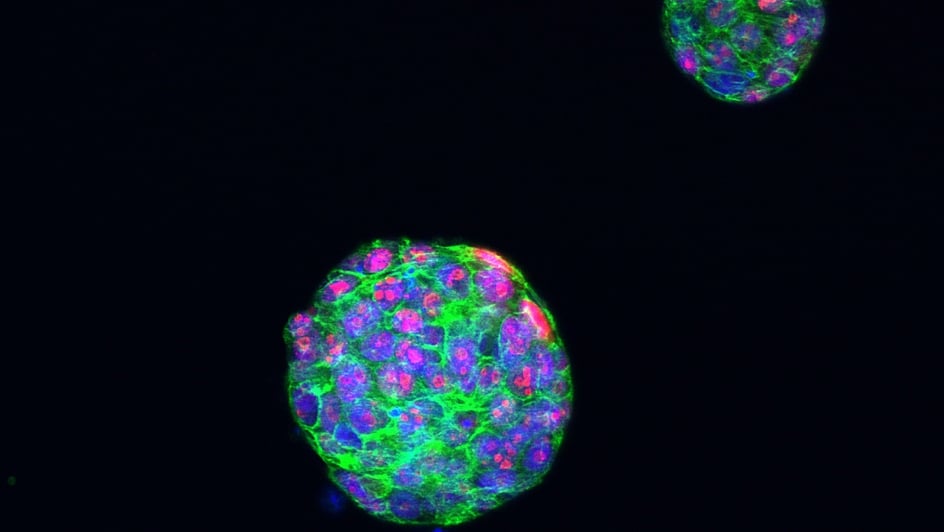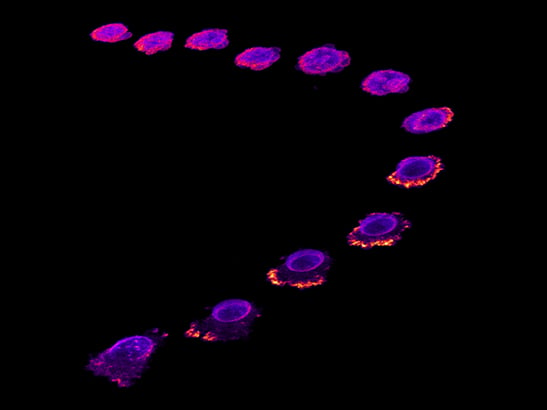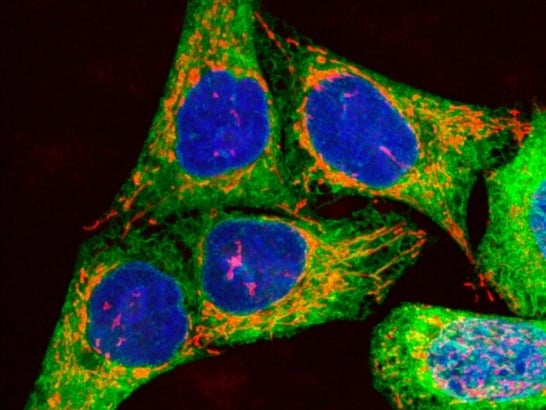Molecular Oncology Group
Professor Nicholas Turner’s group is developing non-invasive analyses of breast cancer in order to identify potential therapeutic targets in cancer and track a patient’s response to treatment.
Research, projects and publications in this group
We aim to validate potential therapeutic targets in cancer, in particular in breast cancer, and identify the factors that predict for response to therapy. Professor Turner also leads a number of clinical trials of targeted therapy in breast cancer.
One of the group's aims is targeting aberrant Fibroblast Growth Factor Receptors (FGFRs) in cancer. Activation of the FGFRs is one of the most common oncogenic events in cancer, which is frequently associated with a poor outcome. We are interested in identifying determinants of sensitivity to FGFR inhibitors and mechanisms of resistance.
The group also has a focus on targeting the dependence on specific cell cycle kinases in breast cancer, in particular WEE1 inhibitor combinations and the targeting of CDK4/6 in breast cancer.
The group is also interested in non-invasive analysis of breast tumour phenotypes through analysis of circulating free DNA, and the potential to use such assays to personalise breast cancer therapy and dissect intra-tumoural heterogeneity.
Professor Turner is Chief Investigator of a number of clinical trials of targeted therapy in breast cancer, with these trials focused on the delivery of personalised therapy for breast cancer.
Targeting aberrant fibroblast growth factor receptor signalling in cancer
Activation of fibroblast growth factor receptors (FGFR) is one of the most common oncogenic events in cancer, and we are interested in particular in cancers with FGFR amplification. We seek to understand how amplification of the receptor is oncogenic, what predicts whether a cancer responds to FGFR inhibition, what are the mechanisms of resistance, and how this can inform the development of rational combination strategies.
Targeting dependence on cell cycle kinases in breast cancer
Control of the cell cycle is frequently aberrant in cancer, and this presents a potential therapeutic strategy, as cancers become reliant on specific kinases to either promote cell cycle progression or restrain inappropriate cell cycle progression in the presence of DNA damage. Particular areas of research include the potential to target CDK4/6 in luminal breast cancer, and WEE1-chemotherapy combination in TP53 mutant and triple negative breast cancer.
Non-invasive analysis of breast cancer tumour genetics
Breast cancer treatment increasingly relies on the identification of particular somatic mutations to direct appropriate targeted therapy. Cancer DNA can be detected in the blood of patients with breast cancer, and this potentially presents a non-invasive way of assessing breast cancer genetics. We have developed assays of HER2 in such circulating free DNA that show a high concordance with tumour derived HER2 status, and are developing and validating high sensitivity digital PCR assays for other breast cancer oncogenes. We are also investigating the use of next generation sequencing of circulating free DNA, and whether this presents a tool to dissect intra-tumoural genetic heterogeneity in advanced breast cancer.
Delivery of personalised therapy for breast cancer
Dr Nicholas Turner is chief investigator of a number of targeted therapies in breast cancer, with the aim of assessing the potential to target specific genetic mutations and amplifications in cancer including FGFR1 amplification and PIK3CA mutation.
Professor Nick Turner
Group Leader:
Molecular Oncology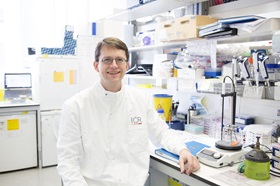
Professor Nicholas Turner is an Academic Consultant Medical Oncologist who specialises in breast cancer treatment. He is a Group Leader in the Breast Cancer Now Toby Robins Research Centre and Chief Investigator of many national and international trials of personalised breast cancer therapy.
Researchers in this group
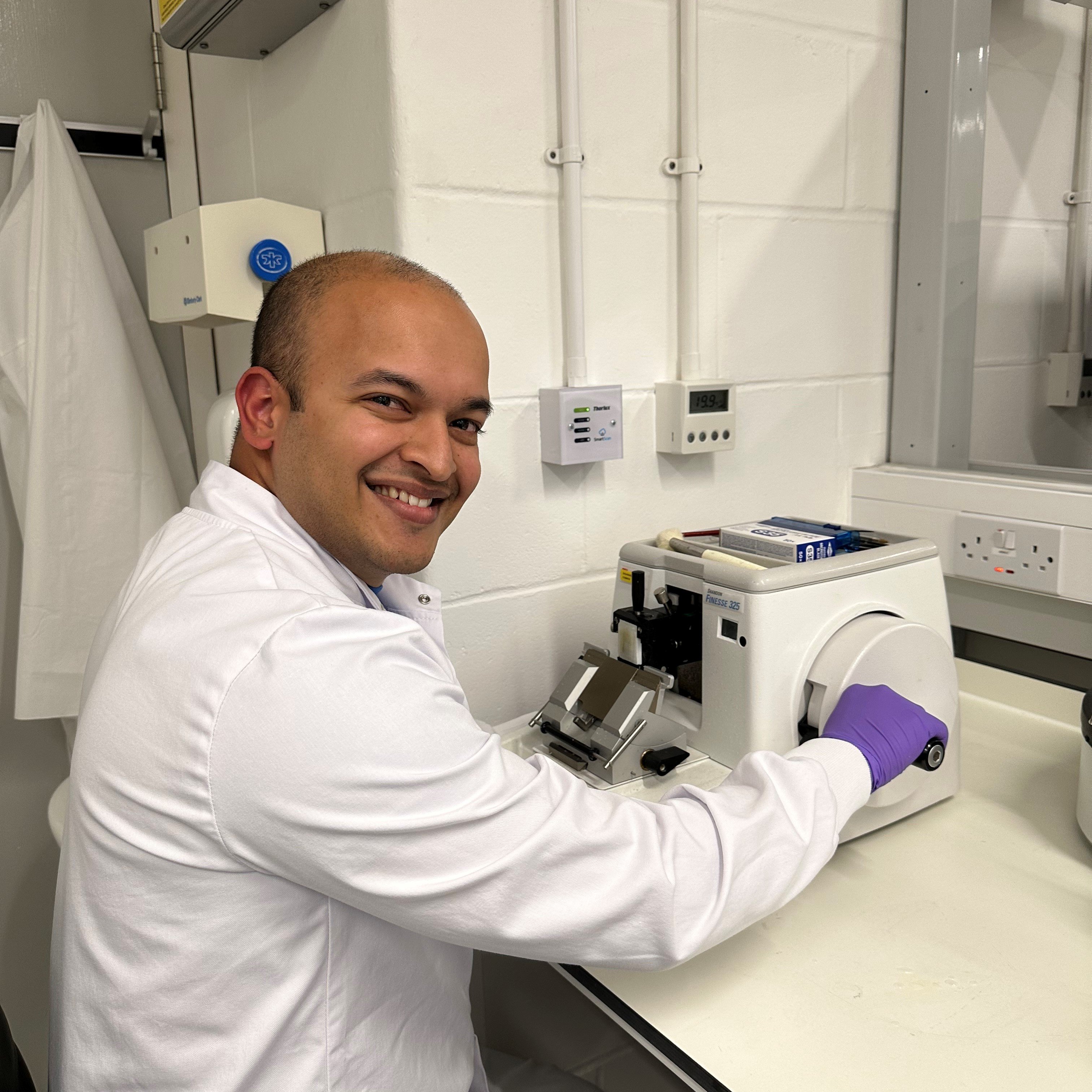 .
.
My research aims to identify candidate biomarkers for improving neoadjuvant therapy in high-risk soft tissue sarcomas. This convergence science project uses an explant-in-chip model developed by the Overby group, our collaborators at Imperial College London.
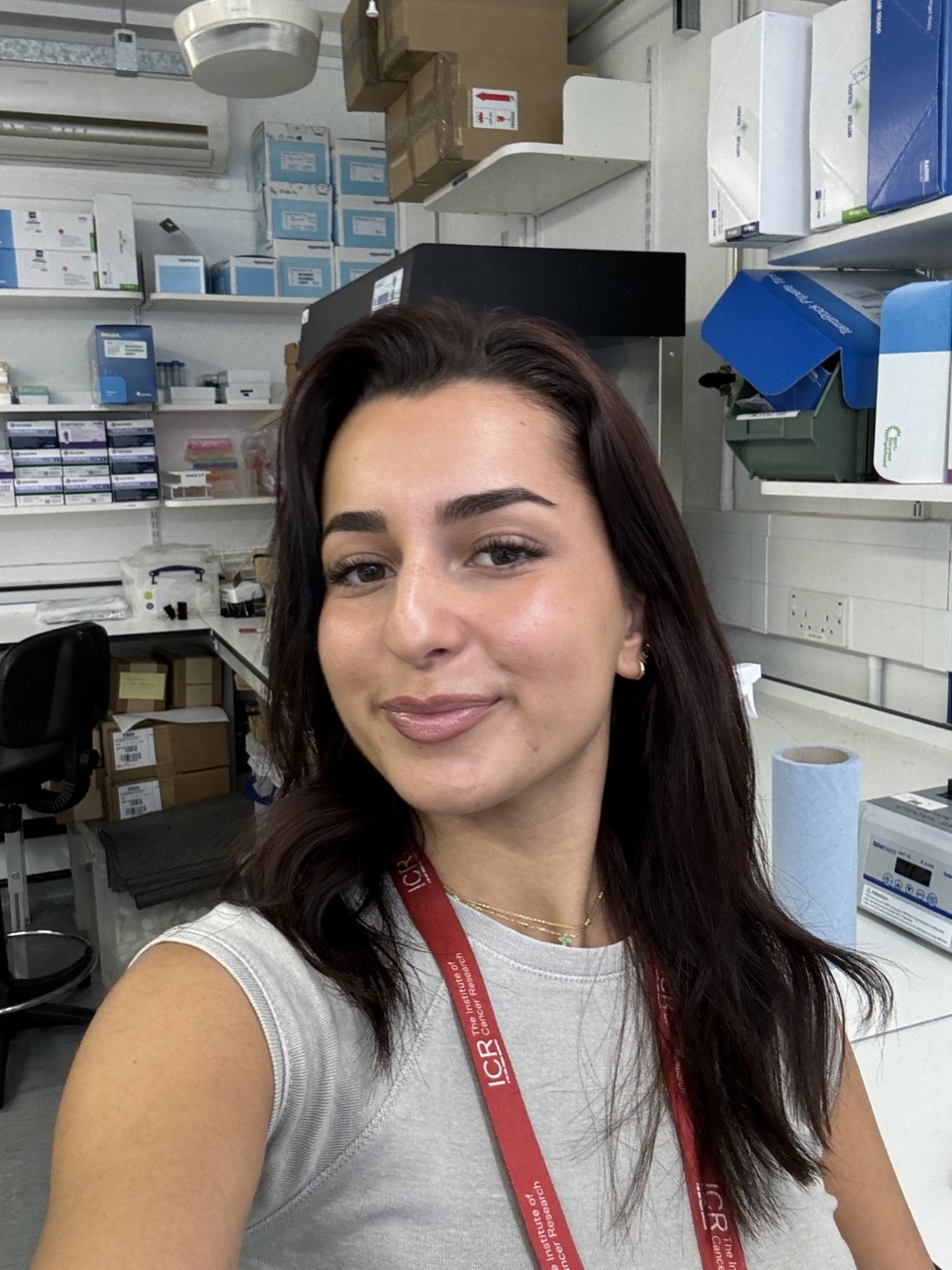 .
.
Working as a Higher Scientific Officer in the team, Aida is focused on the wet lab work intrinsic to several projects in the lab. With the lab’s focus on translational science, her role involves managing clinical trial samples and executing a wide range of molecular biology approaches, including developing custom assays.
Professor Nick Turner's group have written 213 publications
Most recent new publication 2/2025
See all their publications .
.
